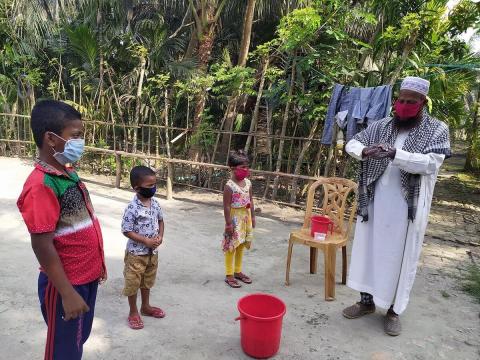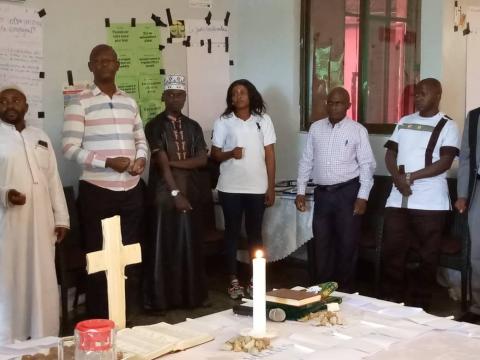
COVID-19’s Challenges to Us as People of Faith
While I am a passionate follower of Jesus Christ, my life and friendship with many people of other faiths has taught me that while we may not share beliefs, our shared humanity and respect for the way faith shapes our lives allows us to join hands in serving vulnerable children across religious boundaries.
But what does that mean in a time like this, when a pandemic is shaking people’s lives and, for some, their foundations and faith? Do we, as people of faith, have a particular role to play?
The answer is, of course, unequivocally yes. But how, and where?
First, while we are worried about our families and our jobs and our futures, our brothers and sisters in developing countries are on the frontlines. In so many of these places faith-based organisations play a substantial role in providing healthcare, and they need help to continue to provide those services and avoid a secondary catastrophe. We know the secondary health effects of COVID-19, on children in particular, could be devastating; as many as 30 million children’s lives are at risk, as we outline in World Vision’s latest report Aftershocks. People of faith on the health frontlines in developing countries have a key role to play, to prevent this catastrophe becoming a reality.
Second, we need to link behaviour change work with people’s faith. Be it messages around vaccinations, hand-washing, burial practices or distancing, the desired behaviour change will only happen if connects to something of significance within individuals. I know because I have seen this in action, and heard it directly from people. Faith is at the heart of this. It is a critical factor guiding the daily lives of 80% of the world’s population. If we as people of faith can help link technical information to religious values and practices, people are much more likely to embrace the change.
Third, we have an important role to play to stamp out misinformation. To correct damaging mistruths. As with Ebola, in some of the countries where World Vision works there is a lot of stigma associated with COVID-19, especially towards people who are infected or have recovered from the disease. They are being shunned, or – hard to believe – hearing that becoming sick with COVID-19 is a divine punishment for sin. Throughout our faith communities how we speak and behave will either increase the isolation and pain of those suffering or be a balm of healing to their souls.
Faith leaders must be truth tellers, because their influence is invaluable. I’ve learned that when people are faced with conflicting information they often turn to faith leaders to find out ‘the truth’ and the ‘correct’ behaviour to adopt. During the Ebola crisis, we had to somehow stop people shaking hands which conflicted with local and religious custom that placed a high value on the practice. Not shaking hands with your neighbour would be considered offensive. It was only when we worked with pastors, priests and imams, to help them understand how infections were passed on, that we saw people begin to adapt their behaviour. If people believe children don’t get sick with COVID-19, or that it is best for children not to talk to them about the crisis, imagine how this exposes them to physical and mental health risks. So let’s use the trust and shared values we have and motivate people to adopt the correct behaviour to avoid infection with COVID-19, but also to encourage them to continue observing the critical behaviours to protect their children against preventable diseases.
COVID-19 lockdown coincided with Lent and Easter, the most important celebration of the year for me as a Christian. It celebrates Christ’s sacrifice: having being crushed for our sorrow, sin and diseases. It celebrates Christ’s victory: after having been locked down dead in the grave, he has broken forth with unquenchable life for me to enjoy for ever! How could I not be motivated by the amazing grace and hope of the Gospel and reach out to the suffering in solidarity and hope. We have challenges before us, but by the grace of God, our faith and our works motivated by it, will help us overcome them.
To learn more about World Vision's faith and development work click here
Why not read our COVID-19: Guidance for Faith Communities & Places of Worship here
Esther Lehmann-Sow is World Vision International's Faith and Development Partnership Leader.
This blog was originally published by Arigatou International Advisory group on their webpage, Esther Lehmann-Sow is a member of Arigatou International Advisory Group

